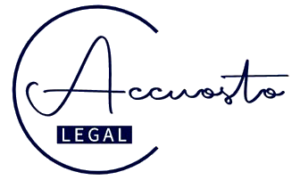
In the last year, we have been acting for several well-known Spanish and British tattoo artists who live in Spain. They want to know if their tattoos are Copyright (“Intellectual Property” in Spanish) and who is the owner; and what can they do against «imitations».
In general, tattoos «attached» to a human body can be protected by copyright (Intellectual Property) in certain cases.
IS A TATTOO A “WORK OF ART”
The first issue is to decide if the tattoo is a «Work of Art», in the sense of Article 10 of the Spanish Copyright / Intellectual Property Law. Article 1 says that all artistic … original creations … expressed by any means, or on any support, tangible or intangible, currently known or that is invented in the future, can be considered Intellectual Property.
IS A SPECIFIC TATTOO AN INTELLECTUAL PROPERTY? IS IT A WORK OF ART?
A tattoo, like any other «Work», must meet two requirements, to be considered «Intellectual Property», because it is a «Work of Art»:
- Originality
- Creativity
The Spanish Supreme Court Decision (“Sentencia”) of June 7, 1995 distinguished between works that can be considered an Intellectual Property and other creations:
Intellectual Property refers only to «works», produced as the result of an individualized and personalized «creation», with a «paternity» of an «author». Not … everything reproduced by the graphic arts; not all the «products» of this industry become «works of art».
“PRODUCTS” vs “ART WORKS”
This distinction between simple «products» of the industry and «works» of creation is useful for any kind of artistic creation. Only the products of human intelligence deserve protection, says our Supreme Court.
Accordingly, it is necessary that the tattoo is an «original» creation, to be considered an «Intellectual Property».
According to Spanish Supreme Court Decision (“Sentencia”) 24 June 2004, for the work to be «original», a minimum singularity and novelty of creative height is needed.
It is likely that «creations» of low level (for example, brochures or advertisements) are not «creative works». Spanish Supreme Court Decisions (“Sentencias”) of January 30, 1996 and May 13, 2002.
Spanish Supreme Court Decision (“Sentencia”) of June 24, 2004 states that, for a creation to be considered «Work», it must be «original». Something new must have been created, which did not exist before. That objective novelty determines its protection as Intellectual Property.
ORIGINALITY DEMANDS A “CREATIVE HEIGHT”
The Barcelona Court of Appeal Decision of 29 September 2005 differentiates two kinds of originality:
- Subjective: singularity, not having copied a foreign work; and
- Objective: novelty, having created something different from what already exists.
It concludes that, nowadays, because technical advances allow a minimal contribution of the author … the tendency is towards the objective idea of originality, which requires a novelty in the form of expression of the idea.
According to the Barcelona Court of Appeal Decision of 10 March 2000, the work is “original”, if the form chosen incorporates a specificity that allows it to be considered a singular or different reality because of the impression it produces on the consumer.
TATTOOS ORIGINALITY AND CREATIVITY
Certain tattoos have originality and creativity, because they create something new. These tattoos can be considered creative work and be protected as Intellectual Property.
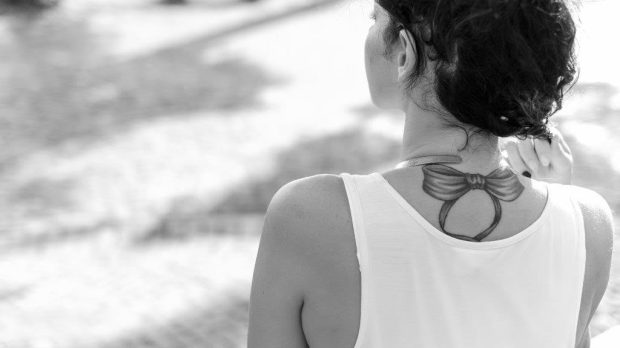
WHO IS THE “OWNER” OF THE TATTOO?
Right of reproduction. Economic rights
Who is owner of the tattoo that has been engraved on a human body? The author of the tattoo? Or of the person, whose body has been tattooed?
Who can decide if that human body, with its tattoo, can be reproduced and how and where? Who has the «Moral Right» on the tattoo?
Who will charge, for the reproduction of the tattooed body, with the tattoo? Who has the «Economic Rights», the «Right of Exploitation»?
Can the tattooed person make a commercial use of his / her image? Or do you need the permission of the tattoo artist?
Licensing the Image of the Person and Tattoo
Many athletes and artists are tattooed today and they license their image, in publicity: sports or clothing brands or perfumes, or in video games or merchandising in general.
Can they do it or do they need the tattoo artist’s permission? In Spain, both the person and the tattoo artist could have rights over that image.
Right over the tattooed person’s image
I have already commented on the Copyrights / Intellectual Property Rights, which certain tattoo artists may have on some of their works, if they are artistic works.
The athlete / artist / catwalk model / public figure also has rights to his / her image, even if he / she is tattooed, in Spain. They are protected by the Spanish Organic Law on Protection of Honor, Intimacy and Image.
Article 1 of the Law on Protection of Honor and Images says:
The fundamental right to a person’s honor, personal and family privacy and one’s own image … will be protected civilly against all kinds of illegitimate interference, in accordance with the provisions of this Organic Law.
The right … to the image itself is inalienable … The waiver of the protection provided for in this Law will be null, without prejudice to the assumptions of authorization or consent …
Article 2 of the Law states that:
1.- There will be no illegitimate interference with the protected rights … if the owner of the rights has granted his consent to use.
Article 7 of the same Law says:
It will be deemed an illegitimate interference …
- To capture, reproduce or publish by photography, film, or any other procedure, the image of a person …
- To use the name … or the image of a person for advertising, commercial or similar purposes.
In Spain, the athlete / artist / model catwalk / youtuber is the «owner» of his / her own image; and of the tattooed parts of his / her body too.
Without the specific consent of the tattooed, not even the tattoo artist can:
- Interfere in that right.
- Play with or publish your image, even in ads.
Fair Use of Copyright / Intellectual Property over a Tattoo
In Spain, the situation seems clear, but it has been discussed in US courts. Several tattoo artists have claimed against athletes, who permitted that their image (including their tattoo) is used in video games.
In general, US courts consider that the «copyright» (Intellectual Property) of the tattoo artist is not an absolute right: it must be used in a «fair» manner. It can not be exercised against the right of the individual to his / her own image and freedom of expression.
American legal authors go a step further. They consider that the licensed «object» is the person of the tattooed athlete, its entirety; the tattoo would be secondary. The «cause» of the license is the person, the individual, and his / her image. The athlete’s tattoo is incorporated into his / her person. Thus, the Intellectual Property must yield, before the person’s Right of Image.
This would be indisputable in Spain, because the person’s Right of Image is of superior rank. It is a right recognized in:
- The Spanish Constitution, hence it is a Fundamental Right.
- Ous Law on Protection of Honor and Intimacy: an Organic Law, therefore, of higher rank than the Intellectual Property Law.
In any case, it would always be safer to obtain a license from the tattoo author.
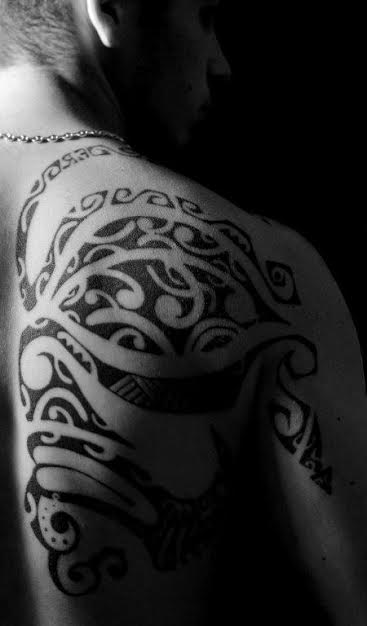
THIRD PARTY’S ILLEGAL USE OF A TATTOO
Most of the queries we receive are connected with claims by famous tattoo artists, who discover reproductions of their famous tattoos:
- On the body of other people, made by other tattoo artist; or
- In garments or in merchandising products.
TATTOOS THAT IMITATE OTHER ARTIST’S “WORKS” / “INTELLECTUAL PROPERTY”
The cases we have dealt with are tattoos, that reproduce a famous tattoo; or they are a confusing imitation. There is also the case of tattoos that «mimic» / reproduce other «Intellectual Properties», such as a comic character.
Copyright Infringement
In both cases, there is a Copyright / «Intellectual Property» infringement of:
- The tattoo artist’s «Original Work»; or
- The author’s rights over the comic’s character.
The infringer could try to argue that they are «private copies» of the «Work»: they have been made, for the tattooed person’s private use. Article 25 of the Spanish Copyright (“Intellectual Property”) Law allows individuals to make «private copies» of a protected work.
I understand that this argument can not be sustained.
The Judgment of the Court of Justice of the European Union TJUE of 10 April 2014 (ACI Adam / Stichcting of Thuiskopie and Stichting Onderhandelingen Thuiskopie) makes it clear that the «private copy» exception only applies to reproductions of properly licensed sources; not to illicit reproductions.
Imitation of a famous tattoo, in clothing, games, merchandising.
Renowned tattoo artists often see how their tattoos, or very similar imitative tattoos, are reproduced in garments, in games or in merchandising.
I understand that it is a clear case of infringement of your Intellectual Property, if the imitated / copied tattoos have sufficient creative height, to be considered «Work of Art». As I said before, I understand that they can become one.
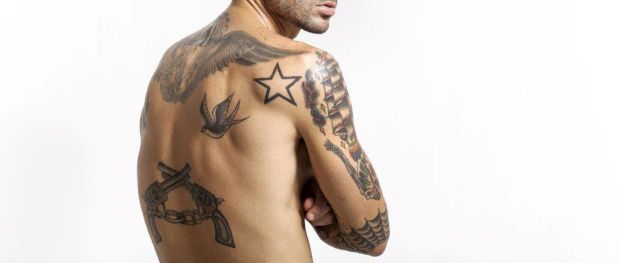
Legal Measures against Infringers
In these cases, the Law of Intellectual Property LPI allows the creator of the «Work», in this case, of the tattoo, to claim against the imitator.
Article 138 of the Spanish Copyright / Intellectual Property Law states that:
The owner of the rights recognized in this Law, without prejudice to other legal actions he could have, may claim that the illegal activity of the offender be ceased and demand compensation for the material and moral damage caused … He may also request the publication … of the Court decision …
Article 139 of the Law specifies what can be requested, against the offender. The cessation of illicit activity may include, among other things:
- The suspension or prohibition of the infringing activity ….
- The withdrawal and destruction of the infringing products and the elements intended to manufacture it.
Article 140 of the Copyright Law also allows to claim compensation for the damages suffered by the owner of the Intellectual Property right infringed: not only the value of the loss suffered, but also that of the illegal profit obtained …
Previous Exhaustion of Rights?
Infringer could claim that the tattooist has no right to claim: his «Intellectual Property Right» would have ended. The right would have been exhausted, from the moment in which the «Work», the tattoo, was engraved on the body of another person. It would have been put on the market: sold / sold to the person, who wears it on his skin.
This argument is not acceptable. The Law of Intellectual Property of the tattoo artist is not exhausted by the transfer of the tattoo to the person wearing it.
The EU Court of Justice Decision of 22 January 2015 (Art & Allposters / Stichting Pictoright) considers that the first placing on the market (in this case, the stamping of the tattoo) does not imply exhaustion of the Intellectual Property Right:
The holders of Copyrights had not given their consent to the transfer on canvas … Applying the rule of exhaustion would deprive the Copyright holders of the possibility of prohibiting the distribution of those objects or of demanding an adequate compensation for the commercial exploitation of their work.
… [T] he Court of Justice has already stated that … such compensation must have a reasonable relation to the economic value of the exploitation of the protected object … See … The Football Association Premier League and others Case … As regards to transfers on canvas, it is peaceful between the parties … that their economic value significantly exceeds that of the posters.
In ous tattoo cases, the artist has engraved the tattoo, on the person, for a price appropriate to the transfer of his / her Intellectual Property. But that price can not cover, in addition, later uses of the tattoo: in an advertising campaign or a promotion of T-shirts …
UNFAIR COMPETITION
If the tattooist is renowned, or some of his tattoos are famous or characteristic, these tattoo imitations (or his reproduction in other media) could also be unfair competition.
Article 11 of the Spanish Unfair Competition Law says that the imitation of other person’s creations / products is unfair / disloyal when:
- It may cause confusion / association by consumers regarding the goods; or
- Implies an improper use of the reputation or the efforts of others.
If there was no imitation, but a simple “reference to», or connection with, the tattoos of a renowned tattoo artist, Article 6 of the Unfair Competition Law could be applied. It deems disloyal the behavior that may:
- Create confusion with the activity or services of others.
- Cause a risk of association by consumers.
ROUTES TO PREVENT THE REPRODUCTION OF TATTOOS
Therefore, the tattoo artist, who creates an original work, will be the author of an Intellectual Property. His / her rights can be defended, as such, against the misuses of other imitative tattooists, or of third parties that use tattoos, in other areas, such as clothing or advertising.
In Spain, the tattoo artist’s defense may be based on the Spanish Law of Intellectual Property, in some cases, or the Spanish Law of Unfair Competition, in others.
Santiago Nadal
